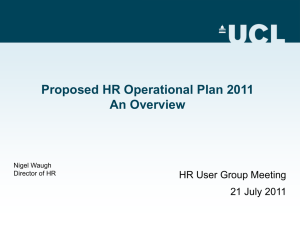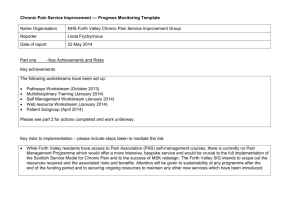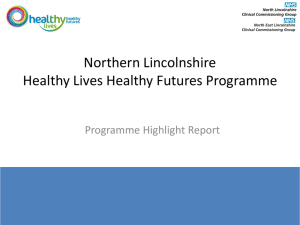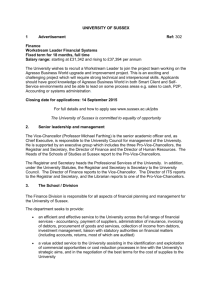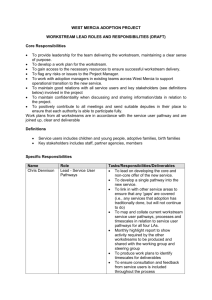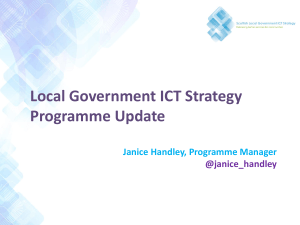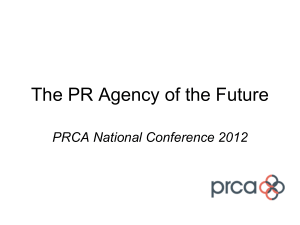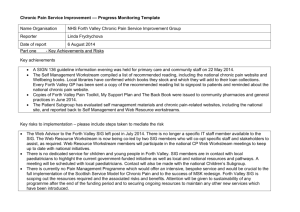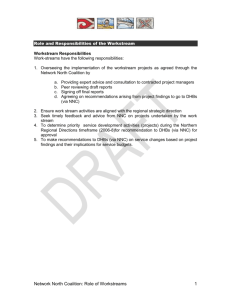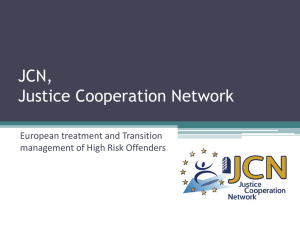Emerging themes - Health in Wales
advertisement
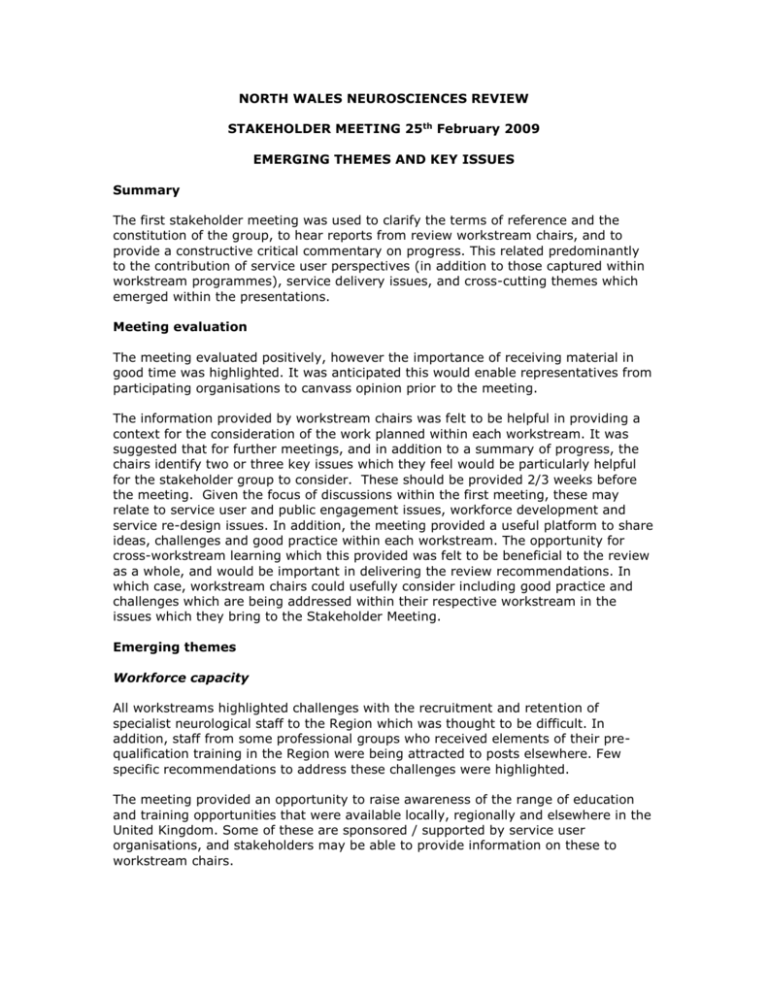
NORTH WALES NEUROSCIENCES REVIEW STAKEHOLDER MEETING 25th February 2009 EMERGING THEMES AND KEY ISSUES Summary The first stakeholder meeting was used to clarify the terms of reference and the constitution of the group, to hear reports from review workstream chairs, and to provide a constructive critical commentary on progress. This related predominantly to the contribution of service user perspectives (in addition to those captured within workstream programmes), service delivery issues, and cross-cutting themes which emerged within the presentations. Meeting evaluation The meeting evaluated positively, however the importance of receiving material in good time was highlighted. It was anticipated this would enable representatives from participating organisations to canvass opinion prior to the meeting. The information provided by workstream chairs was felt to be helpful in providing a context for the consideration of the work planned within each workstream. It was suggested that for further meetings, and in addition to a summary of progress, the chairs identify two or three key issues which they feel would be particularly helpful for the stakeholder group to consider. These should be provided 2/3 weeks before the meeting. Given the focus of discussions within the first meeting, these may relate to service user and public engagement issues, workforce development and service re-design issues. In addition, the meeting provided a useful platform to share ideas, challenges and good practice within each workstream. The opportunity for cross-workstream learning which this provided was felt to be beneficial to the review as a whole, and would be important in delivering the review recommendations. In which case, workstream chairs could usefully consider including good practice and challenges which are being addressed within their respective workstream in the issues which they bring to the Stakeholder Meeting. Emerging themes Workforce capacity All workstreams highlighted challenges with the recruitment and retention of specialist neurological staff to the Region which was thought to be difficult. In addition, staff from some professional groups who received elements of their prequalification training in the Region were being attracted to posts elsewhere. Few specific recommendations to address these challenges were highlighted. The meeting provided an opportunity to raise awareness of the range of education and training opportunities that were available locally, regionally and elsewhere in the United Kingdom. Some of these are sponsored / supported by service user organisations, and stakeholders may be able to provide information on these to workstream chairs. Role re-design Opportunities for the expansion and/or re-design of existing roles, and for new roles were highlighted as having potential both to deliver the outcomes of the review, and to address gaps in the existing workforce. A number of local and regional innovations were mentioned. These included: the development of a ‘Specialist Neurological Nursing’ role which appears to have increased patient access to interventions and services, and the expansion of one Consultant Orthopaedic Surgeon role to perform noncomplex spinal surgery. It was recognised that a considerable programme of role re-design work has been underway in other countries of the United Kingdom, and that these should be an additional source of ‘intelligence’ for workstream chairs. Specialist nurses It was reported by a number of stakeholder organisations that specialist nurses were valued by patients and carers. Discussions focused on variations in how these different roles were funded or operated in practice, and the need to develop these roles to meet the particular context of neuroscience services in North Wales. There appeared to be some merit in pursuing a ‘generalist’ neurological nursing role working across diagnostic related groups, with the potential for further specialisation to address gaps in systems and population needs. The meeting was reminded of the importance of developing appropriate neurological knowledge and skills across the health and social care workforce as a whole to assure the patient and carer experience. Population needs It was felt that stakeholder organisations had access to a wealth of knowledge about the problems faced by particular patient groups, how these problems related to needs for services, and how these services might best be delivered. It was felt this information may be particularly helpful in informing the design of neurological rehabilitation, long term care, palliative care, and end of life care. The consideration of rehabilitation within its widest sense, and the identification of good practice in other neurological centres by this workstream was commended. Communication The meeting highlighted the beneficial effects of the networking amongst and across workstreams that had already occurred, including raising awareness of referral criteria for existing clinical pathways. It was felt that this would be an important aspect of informing governance arrangements as services were in ‘transition’.
